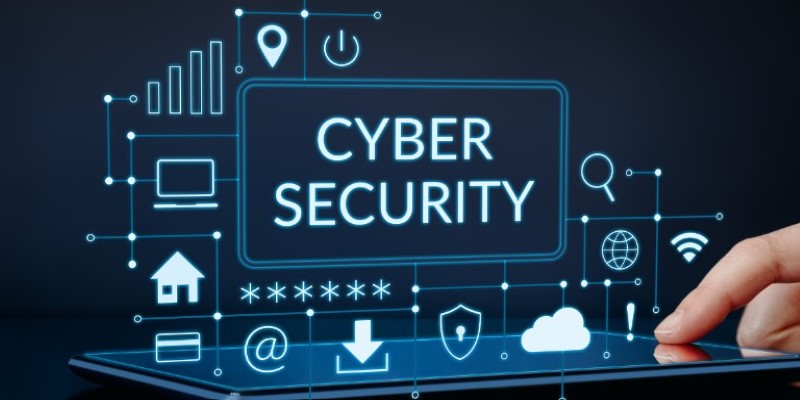Free Internet Access for Seniors: Where to Find It Near You
Staying connected in todays digital world is essential, especially for seniors who want to keep in touch with family, access vital information, or explore new hobbies online. However, not all seniors have easy access to the internet, either due to financial constraints or lack of technical infrastructure in their living areas.

Fortunately, there are numerous options available that offer free internet access specifically tailored to seniors. In this article, we'll explore the various places and programs that provide free internet access for seniors, helping them stay connected and engaged in 2024.
The Importance of Internet Access for Seniors
Internet access is more than just a luxury for seniors; its a necessity. It allows them to maintain social connections, access telehealth services, and keep up with current events. Many government services and social support systems are also increasingly moving online, making it crucial for seniors to have reliable internet access.
Moreover, the internet offers opportunities for lifelong learning, entertainment, and managing personal finances, all of which contribute to a better quality of life for elderly individuals.
Local Options for Free Internet Access for Seniors
Here are some local options for free internet access for seniors:
Public Libraries: A Hub for Free Internet Access
One of the most accessible places for seniors to find free internet access is the local public library. Libraries across the country offer free Wi-Fi that can be used on personal devices, such as smartphones, tablets, or laptops. Many libraries also provide public computers that seniors can use, often with no time limit or only minimal restrictions. This makes libraries an ideal spot for seniors who might not own a device or are still getting comfortable with technology.
In addition to internet access, many libraries offer free classes and one-on-one help sessions focused on digital literacy. These programs can be incredibly beneficial for seniors who are new to the internet or need help navigating online resources. For those who prefer learning in a group setting, many libraries host workshops covering various topics like email usage, social media, or online safety.
Community Centers: Connecting Seniors Locally
Community centers often serve as gathering places for seniors and may offer free internet access as part of their services. These centers are typically designed to support the needs of older adults, offering not just internet access, but also various programs and activities that can help seniors stay active and engaged.

Many community centers provide computer labs with internet access where seniors can browse the web, check emails, or participate in online learning. Additionally, these centers might offer training sessions or workshops to help seniors become more comfortable with using the internet.
Senior Living Communities: In-House Internet Solutions
For those living in senior communities, there may already be free or low-cost internet access available. Many senior living facilities recognize the importance of internet connectivity and have invested in providing Wi-Fi throughout their premises. This service is typically included as part of the resident's monthly fees, but some communities offer it for free, especially in common areas like lounges or libraries.
Residents in these communities can usually access the internet from their apartments or rooms, making it convenient to stay connected without leaving their homes. Some senior living communities also offer tech support services, helping residents set up and troubleshoot their devices.
Local Government Programs: Bridging the Digital Divide
Many local governments have recognized the digital divide affecting seniors and have implemented programs to provide free or subsidized internet access. These programs are often aimed at low-income households, including seniors, ensuring they can stay connected without financial strain. Some municipalities have partnered with internet service providers to offer discounted or even free internet plans for qualifying seniors.
Additionally, local governments may set up Wi-Fi hotspots in public areas like parks, bus stations, or community centers, which anyone, including seniors can access. These initiatives are particularly beneficial in rural areas where home internet access might be limited or unavailable.
Non-Profit Organizations: Extending a Helping Hand
Numerous non-profit organizations focus on improving internet access for seniors, especially those who might be marginalized or living in underserved areas. These organizations often collaborate with tech companies, internet service providers, and government agencies to create programs that offer free or affordable internet access to seniors.
For example, some non-profits provide seniors with free devices, such as tablets or laptops, along with free or discounted internet service. Others might focus on digital literacy, offering free training sessions to help seniors learn how to use the internet effectively. These programs not only provide access but also empower seniors to use the internet confidently and safely.
Faith-Based Organizations: A Community-Focused Approach
Faith-based organizations, including churches, synagogues, mosques, and temples, often play a significant role in supporting seniors within their communities. Many of these organizations offer free internet access on their premises, providing a safe and welcoming environment for seniors to go online.
In addition to providing internet access, some faith-based organizations offer tech assistance programs where volunteers help seniors learn to use computers and the internet. These programs often emphasize intergenerational learning, where younger volunteers help older adults navigate the digital world, fostering both connection and education.
Retail and Coffee Shops: A Convenient Option
Many retail stores and coffee shops offer free Wi-Fi for seniors who are mobile and enjoy spending time outside the house. While these locations might not be specifically geared toward seniors, they provide a convenient option for those who want to check their emails or browse the web while enjoying a cup of coffee or doing some shopping.

Retail chains like Starbucks, McDonald's, and many grocery stores typically offer free Wi-Fi, which can be easily accessed without a purchase. This can be a good option for seniors who are on the go or prefer a change of scenery when accessing the internet.
Internet Service Providers: Low-Cost and Free Plans
Some internet service providers (ISPs) have programs specifically designed to help seniors get online. These programs often offer low-cost or even free internet plans for qualifying seniors, usually those on fixed incomes or participating in government assistance programs. ISPs like Comcast and AT&T have been known to offer such plans under initiatives like the Affordable Connectivity Program (ACP).
These plans typically provide enough bandwidth for basic internet usage, such as browsing, emailing, and streaming. Additionally, some ISPs offer discounted or free equipment, such as modems or routers, further reducing the barrier to getting online. Seniors interested in these programs should contact their local ISPs to inquire about available options.
Schools and Universities: Community Outreach Programs
In some areas, local schools and universities have programs that extend free internet access to the broader community, including seniors. These institutions often provide Wi-Fi on their campuses, which can be accessed by anyone within range, including seniors.
Moreover, many universities have community outreach programs that include digital literacy training for seniors. These programs are often run by students or faculty and provide hands-on assistance with using the Internet and other digital technologies. For seniors living near a college or university, this can be a valuable resource for both internet access and learning.
Conclusion
In 2024, seniors have numerous options for free internet access, from public libraries and community centers to senior living facilities and non-profits. These resources help them stay connected, informed, and engaged in an increasingly digital world.
Access to the internet is crucial for maintaining independence, staying in touch with loved ones, and utilizing essential services. By leveraging these free and low-cost options, seniors can enjoy a more connected and enriched life in 2024 and beyond.
On this page
The Importance of Internet Access for Seniors Local Options for Free Internet Access for Seniors Public Libraries: A Hub for Free Internet Access Community Centers: Connecting Seniors Locally Senior Living Communities: In-House Internet Solutions Local Government Programs: Bridging the Digital Divide Non-Profit Organizations: Extending a Helping Hand Faith-Based Organizations: A Community-Focused Approach Retail and Coffee Shops: A Convenient Option Internet Service Providers: Low-Cost and Free Plans Schools and Universities: Community Outreach Programs ConclusionRelated Articles

Harnessing Data Analytics Tools to Propel Your Business Forward
By - Rick Novak
Sep 06, 2024

Cybersecurity Masters Programs and Marketing Automation Tools in 2024
By - Kelly Walker
Sep 06, 2024

Upgrade your sleep with a smart bed! Discover tips to sleep smarter and improve your restful experience. Find out how technology can enhance your bedtime routine.
By - Rick Novak
Apr 04, 2024

Navigating the Best Internet Options in Hong Kong for 2024
By - Kelly Walker
Sep 04, 2024

Why Big Banks Are Offering Unprecedented CD Interest Rates in 2024
By - Kelly Walker
Sep 05, 2024

A Comprehensive Guide to Bank Account Opening Financial Rewards
By - Kelly Walker
Apr 05, 2024

Understanding What is Private Cloud Hosting and the Benefits
By - Kelly Walker
Apr 03, 2024

The Best and Affordable Online Courses and Degree Programs
By - Rick Novak
Apr 05, 2024

Smart Investment: Buying Cheap Apartments in Dubai for Americans in 2024
By - Kelly Walker
Sep 06, 2024

The Mind-Blowing Chevy Silverado Has Arrived: What You Need to Know
By - Kelly Walker
Apr 06, 2024

Subaru Forester - The Best Car For Seniors in 2024
By - Rick Novak
Apr 05, 2024

The New Hyundai Santa Fe 2024 Will Revolutionize Driving in Miami
By - Rick Novak
Apr 04, 2024
